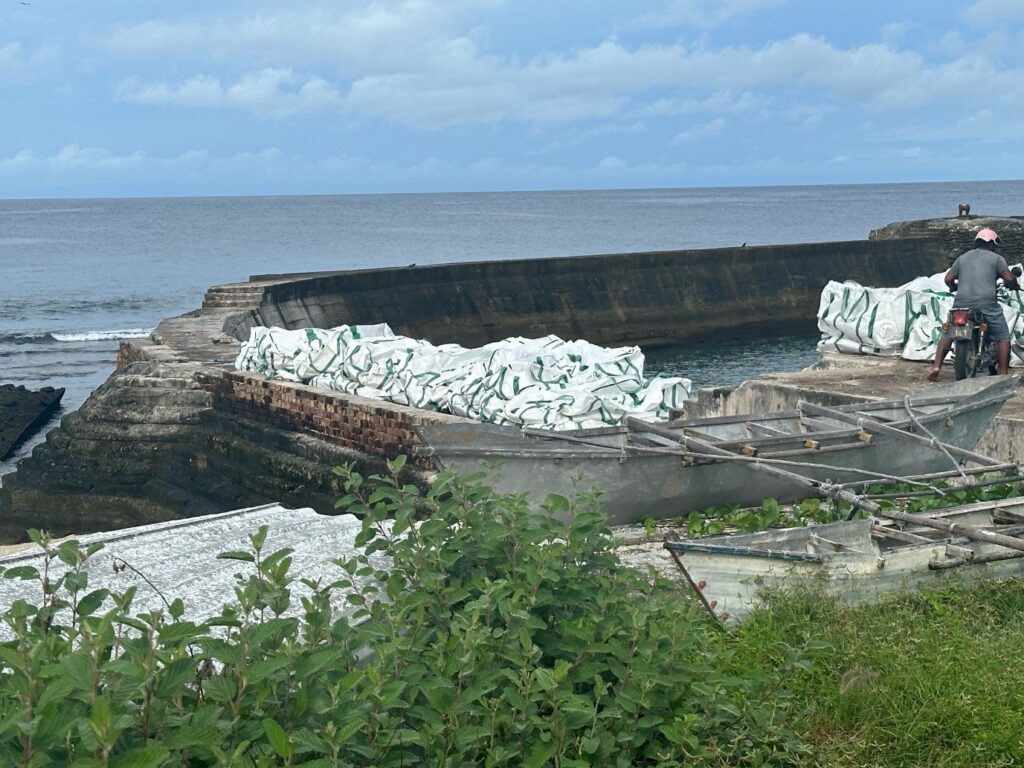News - Mar 25, 2024 Asbestos abatement works underway on Banaba Island
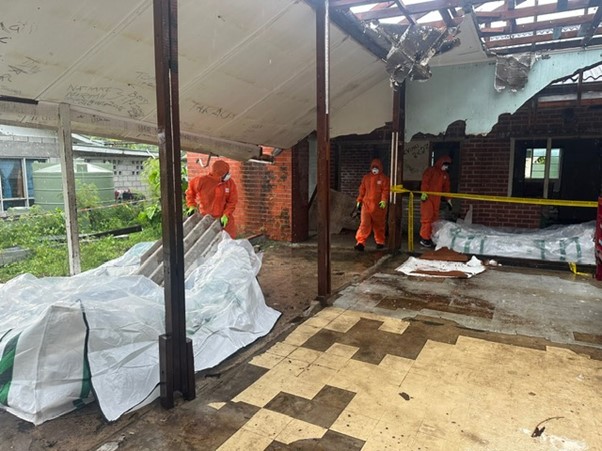
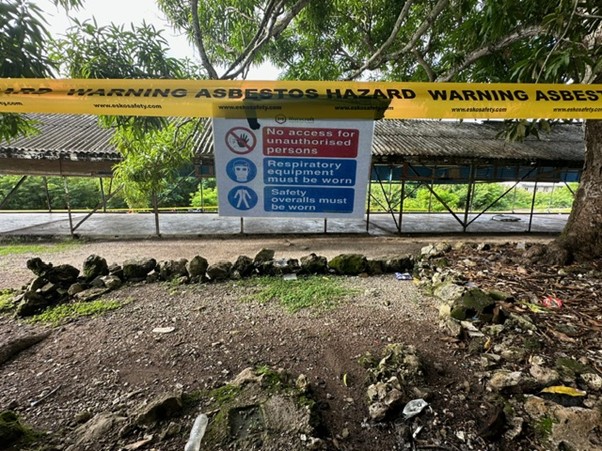
With support from PacWastePlus, Kiribati aims to make dwellings and communal areas on Banaba Island safe by eliminating the risk of asbestos fibre exposure to the public. This work involves removing and safely disposing of Asbestos-containing material (ACM) from high-risk sites on Banaba Island.
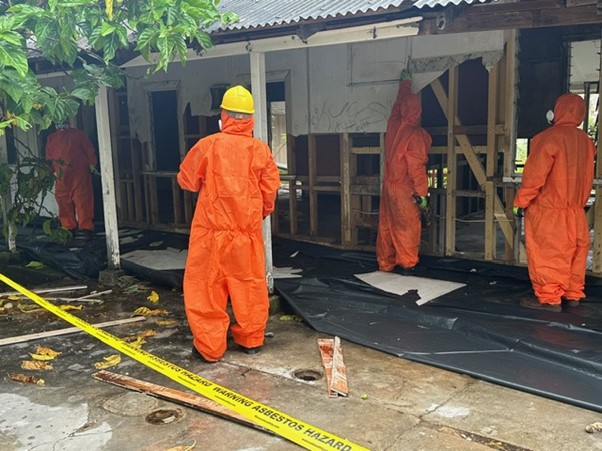
Banaba Island has a long history of asbestos contamination that began with phosphate mining in the early 1900s. Phosphate mining ceased in 1979. Movable assets were transferred to the Kiribati Government, while fixed assets (Structures built with Asbestos Containing Materials) were given to the Banaba Council. These buildings are now heavily degraded, potentially posing health risks to the remaining island residents.

In mid-2022, a team from the Ministry of Environment and Conservation Division (MELAD) conducted an asbestos assessment on Banaba Island, as part of the European Union-funded PacWastePlus project implemented by SPREP. The assessment identified three priority buildings in need of asbestos abatement: the Banaba Hospital, Junior Secondary School, and Primary School.
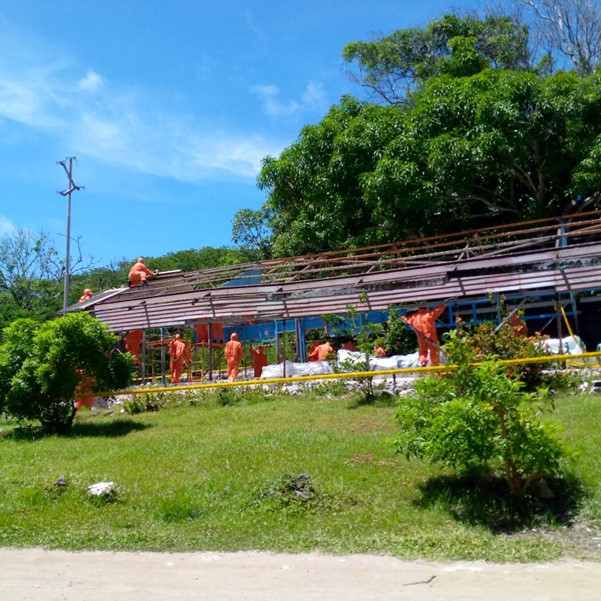
With the help of MELAD and the Banaba Council, PacWastePlus deployed specially trained contractors to Banaba Island to undertake appropriate removal of the asbestos from the buildings. Local Banaba Island residents were trained on safely removing and storing asbestos-containing materials as an additional activity, so they could remain safe from asbestos in other buildings they may interact with.

Over 3,800 m2 of asbestos-containing materials were removed from the buildings in Banaba Island and stored in “HAZIBAGS” which are specially made to ensure no release of asbestos fibres during handling and transport. The bags were shipped to Tarawa and onward to New Zealand for safe disposal in a landfill approved to receive asbestos-containing material.
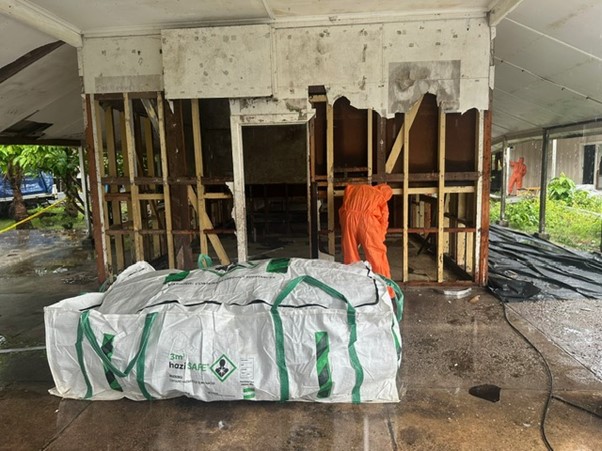
This initiative is crucial for the health and safety of the residents of Banaba Island, as exposure to asbestos can lead to serious respiratory illnesses and cancer. By removing these hazardous materials from the community buildings, the project is improving the immediate environment but also protecting future generations from potential health risks.
The collaboration between MELAD, the Banaba Council, and the PacWastePlus programme is a testament to the resilience and determination of the Banaba community to create a safer and healthier living environment for all its residents.
